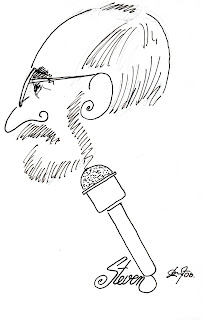Wiston Papers
Where is the America we were promised?
Two
historical documents would serve us well as we approach election day
2012. One was penned during the formative years of America--before the
nation had made the critical decisions that were to shape her destiny.
The second--as seen through the eyes of a foreign visitor--evaluated
the progress of this bold democratic experiment by a young republic.
Alexander Hamilton, John Jay and James Madison collaborated on a series of 85
essays between 1787 and 1788 in which the three argued for establishment
of a Republic. They eloquently and passionately called for a strong
central government to unite the original 13 British colonies. The
authors opposed the concept of a Confederacy that would comprise
loosely aligned independent sovereign states or nations. These essays
were later assembled as the Federalist Papers and remain today among the most erudite collection of political commentaries crafted by the leading scholars of the era.
Nearly
half a century later the young French nobleman Alexis de Tocqueville
traversed young America in search of what made this nation unique. His
one-year search beginning in 1831 resulted in the seminal analysis Democracy in America, which continues as one of the classic descriptions of both the weakness and strength of a representative republic.
Were
Hamilton, Jay, Madison and Tocqueville alive today, what would they
write? How would they evaluate the promise and potential of that young
nation? Would the Federalist
authors be pleased with the evolution of the then embryonic country
What would be Tocqueville’s reaction to how America has guarded the
legacy of her forefathers and the function of the institutions which the
young aristocrat so admired?
Next
month the current United States presidential aspirants will engage in
three televised debates about America. Each candidate will pronounce the vision
he sees for the republic and how his ideas are in keeping with the
traditions of the nation’s greatness. And each hopeful will claim that
his opponent will pursue policies and programs contrary to the American
dream---proposals that would erode those values and weaken the qualities
and institutions that have made this country the envy of the world.
Despite
the inevitable rhetoric, sadly today ours is not the America of the Federalists
nor the republic witnessed by Tocqueville. In 1787 the colonies
comprised a largely racially and religiously homogeneous population who
shared the common aspiration of independence from the yoke of British
oppression and a passion to carve their own destiny. Today’s America
lacks a fundamental unifying goal or shared purpose. And she is beset
by often fractious religious, ethnic, and socio-politico differences that threaten to sever
rather than forge a common spirit.
Although
our founding fathers engaged in occasional passionate debates over the
best method to pursue the nation’s destiny, the goal itself was clearly
perceived...a vision of what the young country could be. Today’s America
is mired in acrimonious partisan squabbling that puts the personal desires of
individual politicians and political party aggrandisement before
patriotism or common national interest.
The
trio of Hamilton, Jay and Madison would be dismayed by today’s
leadership that is bereft of intellectual creativity, morally incapable
of mustering the courage to rescue the foundering nation, and is more
committed to preserving partisan solidarity than promoting policies of national growth, security and equality.
Absent
in 2012 are representatives willing to sacrifice their political
futures for the betterment of America. Instead both ends of Pennsylvania
Avenue are occupied by persons who have abandoned the needs of
the nation in exchange for clinging to their undeserved tenure in office.
The
public servants who inspired and shared the dreams of our founding
ancestors have been supplanted by a class of pampered, lazy elite unwilling to
frame an image of what America of tomorrow should be or how to get
there.
We
no longer are a nation of acclaim; we are a country of blame. We point
fingers not lift spirits. We assign wrong rather than praise right. We protect incivility rather than demand responsibility. We have
replaced pride with perfidy. We have betrayed our inheritance by
electing mediocre politicians instead of choosing meritorious public
servants.
This
November Americans will elect their leaders for the near term. Too few
of us will cast votes to assure that the dream of the Federalists continues. And too few of our candidates will attempt to uphold the vision that ignited the admiration of Alexis de Tocqueville.
It’s
too late this year to effect the critical changes required to turn the
ship of state around and chart a more daring course worthy of the bold
experiment that our founding fathers bequeathed to us.
I
know not how others will vote. But for me I choose to reject every
incumbent in favor of the possibility of meaningful change. That is a
risk I am willing to assume. Because the persons who now represent us
have proven their ineptitude. They have demonstrated that they are
incapable of guiding this nation. They no longer deserve our trust. On
that point there is no doubt. And I am convinced that Hamilton, Jay,
Madison and Tocqueville would agree.
Steve Coon
September 23, 2012
No comments:
Post a Comment